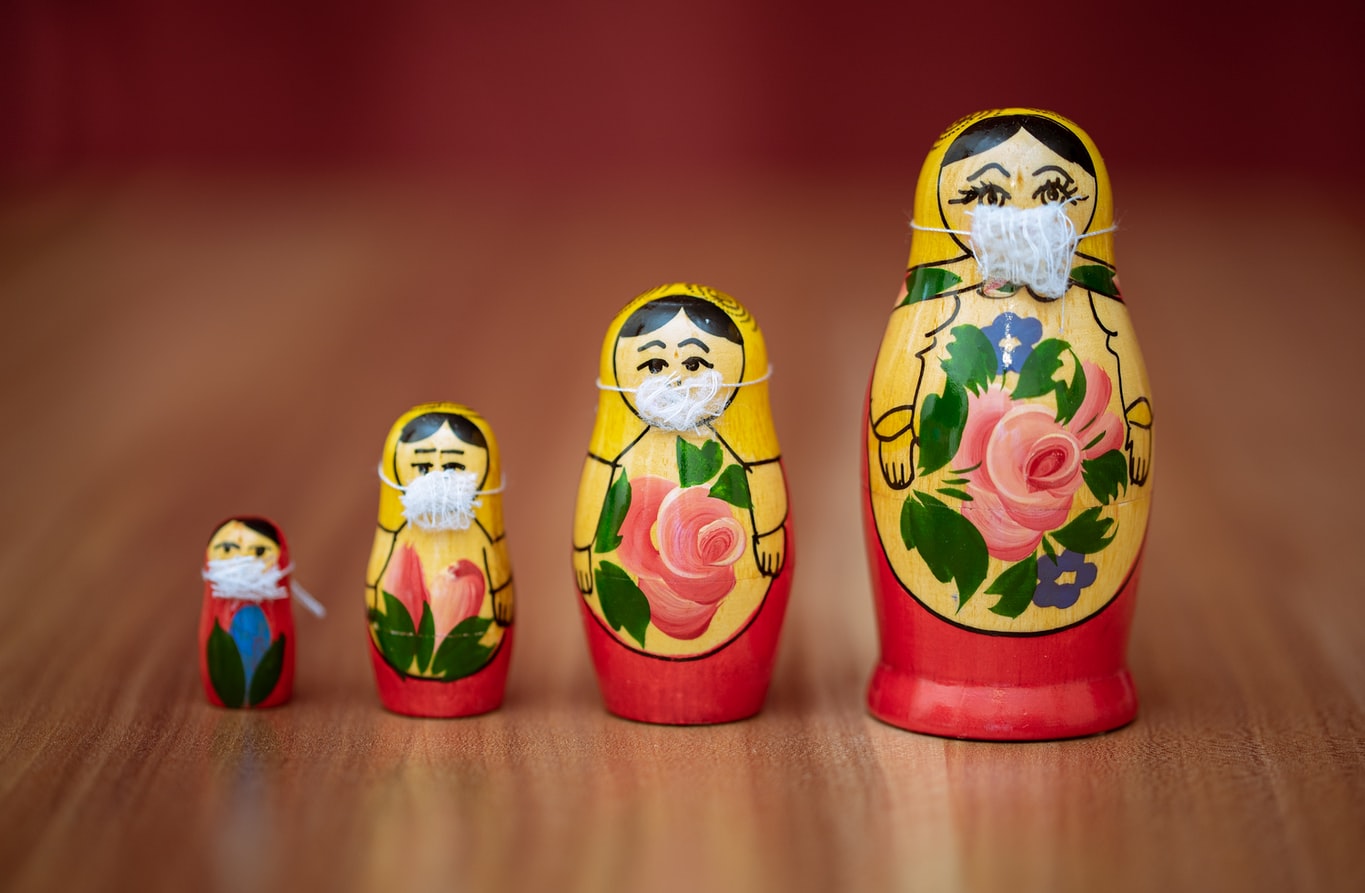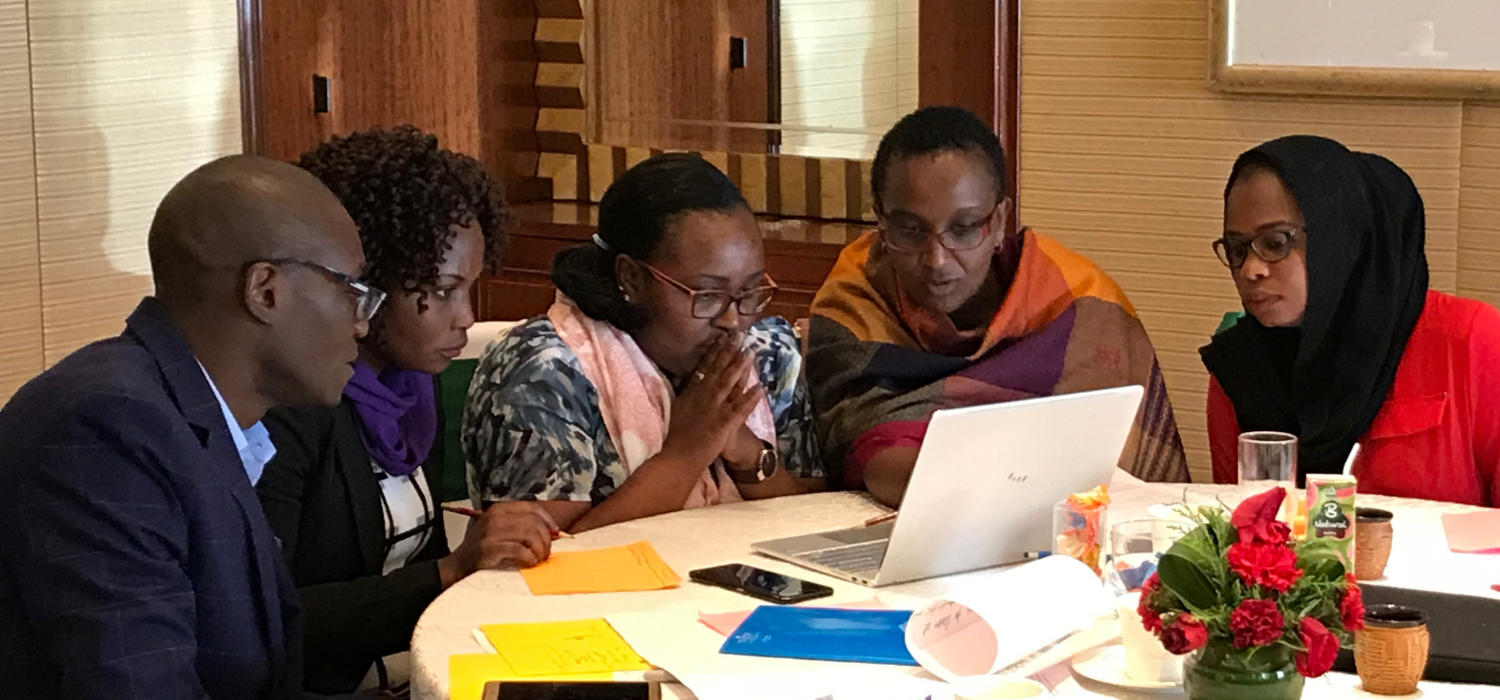This might be the world’s most high stakes collaboration
by Michelle Halse
Unprecedented. Unparalleled. Unthinkable. Uncertain. Chaos. Crisis.
These are words we have become accustomed to hearing ever since the outbreak of COVID-19; so much so that they have become synonymous with our times. And not far behind them comes the phrase: ‘we’re all in this together’. From super funds to government press conferences, these words are being used every day to communicate a shared sense of solidarity and collectivity to our individual experiences of the novel coronavirus. But are we really all in this together? And if we are, are we not all part of the world’s biggest collaboration right now? We take a look at the definition and elements of a successful collaboration to ensure that our response to COVID-19 results in more robust systems, better relationships and stronger communities in 2021 and beyond.
For the better part of 2020, we have all been trying to rise to the immense challenges presented by COVID-19. Indeed, in many ways, we have probably never been more acutely aware of how interconnected and interdependent we are; across industries, across borders, and across oceans. But that doesn’t mean that the effects of COVID-19 are being felt equally or even equitably across the globe.
Each of us, depending on our ability, location, gender, age, socioeconomic status, job security, literacy levels, health status, and a number of other factors, will be experiencing differing and unique challenges since the outbreak of the virus. Some of us are thriving, some of us barely surviving, and some of us experience both on any given day. From access to healthcare and reliable information, to stable work and digital literacy, almost every facet of our society has shown to hold very real and very deep disparities. While some of those divides are closing, others are widening rapidly, making the stakes for ‘failing’ to respond adequately higher than ever.
Regardless of the level of impact that COVID-19 has wreaked on our lives, one thing is for sure: everyone has been impacted in some way, shape or form. In our humanity, although our circumstances may be very different – we are certainly not navigating this rocky terrain alone and, in that sense, we are ‘all in this together’.
Whether we realise it or not, and whether we chose it or not, we are in the midst of the world’s biggest, and most important collaboration.
Defining collaboration
Collaboration is everywhere; it is all around us all the time. It is both a thing we do and a thing we create – and each of us is part of dozens of collaborations every day from our families and communities to the places we live, work, shop, and play.
The most effective collaborations involve both conscious (and unconscious) decisions, discoveries, and negotiations to work together. They are expansive, nuanced, living, and often evolve and grow to give life to new ideas, innovations, ways of working, and ways of being.
Perhaps most simply, we define collaboration as: people or groups coming together, with a shared purpose and goals, to ‘get things done’ and it is so important because people who are connected by a deep purpose can achieve transformational change by working together.
This year, we have come together as individuals, families, organisations, networks and nations as a global community, with a shared purpose to curb the spread of COVID-19, to create the world we know is possible. We are each pieces of a bigger puzzle. And while we are all currently in the midst of an all-encompassing global collaboration, our ability to design, create and sustain healthy forms of collaboration is not shared or universal. So, what does it take to collaborate?
- Courage to tap into creativity – willingness to be challenged and try new things = personal mastery
- Expert navigation of shared risk and reward – identifying and being transparent about what is on the line for each collaborator and what you seek to gain = shared intention
- Brokering commitments of resources – what you are willing to offer in exchange for the outcomes you seek = collaborative infrastructure
- Desire to build the foundation for innovation and breakthrough i.e. building trust and safety = organisational adaptability
If we look around right now, could we say that our global coronavirus response shares the hallmarks of a successful collaboration?

Let’s take a look at how this global collaboration is going and what we can do to increase the likelihood of success through the lens of Living Collaborations’ four keys to successful collaborations: personal mastery; shared intention; collaborative infrastructure; and organisational adaptability.
Personal mastery
For many of us, 2020 has fast-tracked personal growth, and we have been forced to get to know ourselves and what pushes us to the edge more deeply than ever before. The good news is that this period of rapid learning and understanding the ways that we cope (or don’t cope so well) with crisis and uncertainty forms the first pillar of achieving success in collaboration: personal mastery.
As with most things in life, strong collaboration starts with us and our ability to bring self-awareness, curiosity, imagination, and courage to the table. Without those things, our ability to collaborate effectively is severely compromised. Now is the time to reflect on what you have noticed about yourself since the start of the pandemic, and use those insights to get on with the work of collaborating from a place of personal mastery.
What have you learned, noticed, connected with or grown in since the start of the pandemic? How might you integrate these new insights into who you are and how you work?
Shared intention
The pandemic has fundamentally changed the dynamics between collaborators from the tools we use to connect, to the ways we share information. Over the past six months, we have noticed an increasing openness, vulnerability, transparency, and a camaraderie present in collaboration that was somewhat rare pre-COVID. Collectively, as development practitioners and changemakers, this is perhaps due to the fact that we sense that the stakes are higher if we don’t get this global collaboration ‘right’, and so a willingness to try new things has emerged.
The ability to pursue shared intention, to work towards mutuality in all things, and to be specific about the change you want to create is critical to pulling off a successful collaboration any time, but especially right now. To have the best chance of creating meaningful change for all parties, we have to pull in the same direction, and – to channel New Zealand Prime Minister Jacinda Ardern – be kind.
Are you crystal clear on the change you want to create, enough to articulate it to your fellow collaborators? How can you find the point of mutuality to create a strong shared intention for your work together?

Collaborative infrastructure
Zoom. Google. Airmeet, Mural. Slack. Remo WhatsApp. Asana. WebEx. Microsoft Teams. Trello. Monday. Miro. The list goes on…
It’s hard to imagine a world without these tools that enable digital and asynchronous collaboration. There has been a virtual explosion of applications available that support us to work together remotely. However, the tech platforms and ‘collaborative infrastructure’ that we choose (and have access to) can augment the way we relate to each other and dictate the ways we work together in this new ‘normal’.
Access to a stable and reliable internet connection, levels of digital literacy and technological capability, as well as regulatory requirements around sharing information have brought to the fore a series of inequities and obstacles for effective multi-stakeholder collaboration in the COVID-era. Therefore, our ability as collaborators to design the most appropriate and effective tools, processes, infrastructure and systems to get things done is critical to success. This applies to people and organisations.
How willing is your organisation to open up to new possibilities and ways of working? Where might you be able to be more flexible and enable a culture of adaptability and openness?
Achieving success in collaboration
Even before the pandemic, our ability to collaborate had become a core future of work skill. Especially now, given the complex and far-reaching challenges we face as we continue to respond to and recover from COVID, that ability to collaborate has elevated to a critical skill – not of the future but of now. From personal mastery to putting in place the most fit-for-purpose infrastructure, it’s time to step up and collaborate for the more just and equitable world we know is possible. Are you ready? Good. Because, of course, we’re all in this together.
For more on how to achieve success through collaboration, download our free Keys to Successful Collaborations infographic. And, if you would like some more support to bring your collaboration to life, book a Collaboration Life Support call with our team.
Mosaic Photo by Giulia May on Unsplash
Babushka doll Photo by Evgeni Tcherkasski on Unsplash
Group Photo by Michelle Halse- Kenyan PPIUD team collaborating to save the lives of women through birth spacing.





